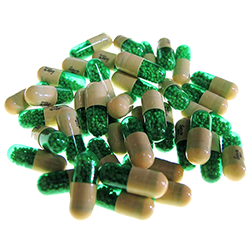
Antibiotics do not treat viral illnesses. Upper respiratory infections among children are mostly viral in nature, but studies show that half of the antibiotics that are being prescribed to pediatric patients are being used to treat upper respiratory infections related to the common cold. There is increased susceptibility to antibiotic-resistant strains of bacteria such as Clostridium difficile among children who are prescribed antibiotics for a simple upper respiratory infection. A CDC study concluded that, “71 of percent children who suffered C. diff infections had been given courses of antibiotics for respiratory, ear, and nose illnesses 12 weeks before infection”. Fourteen thousand deaths occur yearly among children and adults because of C. diff infections causing severe diarrhea which can be life-threatening. Also, C. diff is the root cause for 250,000 infections of hospitalized patients.
The overuse of antibiotics is also detrimental in the treatment of sexually transmitted diseases (STD) such as gonorrhea, which is the “second most commonly reported notifiable disease in the United States”. There were 350,062 cases of gonorrhea reported in 2014 leading to an increase in the national gonorrhea rate of 110.7 cases per 100,000 population. According to the CDC, the reported rate of gonorrhea has significantly climbed since 2009 with an average rate of 98.1 per 100,000 population. The number of cases reported rose 10.5% since 2010. It is becoming harder and harder to treat this STD due to increasing drug resistance. There is causal relation between antibiotic-resistant gonorrhea and health related problems such as pelvic inflammatory disease, ectopic pregnancy, tubal infertility, eye infections, and many other diseases.
Not only does the inappropriate use of antibiotics weigh heavily against fighting many infections, but it is also taxing on the US health care system and it burdens the many patients and families who access that care. Yearly, there are nearly two million Americans who suffer hospital acquired infections (HAI) from antibacterial pathogens in the hospital setting because of the high occupancy of vulnerable patients, the prevalence of invasive procedures, and the high rates of antibiotic use. Of those 2 million who acquire a HAI, a staggering 99,000 Americans died. The US health care system in 2006 was burdened with a cost of $8 billion when two common HAIs, sepsis and pneumonia, were found to be the cause of death for 50,000 Americans. Antibiotic-resistant strains of bacteria may force providers to use other antibiotics that prove to be highly effective, but are toxic to patients and are very expensive. Data has also shown that patients who are undergoing treatment for high antibiotic-resistant strains of infections, incur longer stays at the hospital. The average patient in this group incurs a prolonged stay of 6.4 to 12.7 days equating to 8 million days.
What can be done to combat the misuse or inappropriate use of antibiotics? The FDA and CDC recommend the public be made aware on the proper use of antibiotics. Antibiotics should not be used to treat illnesses that are viral in nature. Also, the FDA advocates research on development for new types of antibiotics to help in the fight against antibiotic-resistant strains of infections.
References
https://www.healthline.com/health-news/five-unintended-consequences-antibiotic-overuse-031114#1
https://www.cdc.gov/std/stats14/gonorrhea.htm
https://www.ncbi.nlm.nih.gov/pmc/articles/PMC4378521/
https://www.fda.gov/ForConsumers/ConsumerUpdates/ucm092810.htm
The information provided is for general interest only and should not be misconstrued as a diagnosis, prognosis or treatment recommendation. This information does not in any way constitute the practice of medicine, or any other health care profession. Readers are directed to consult their health care provider regarding their specific health situation. Marque Medical is not liable for any action taken by a reader based upon this information.

Favorite Platform

New Content



